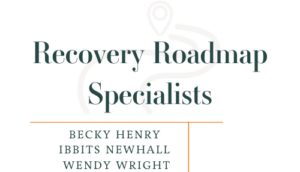After listening to this interview https://youtu.be/wN_uzn9ct8w of Carolyn Costin today about Authenticity I got to thinking about what might be possible if parents and other family caregivers were able to embrace this concept of non-judgment or impartiality about recovery. She talks about truth telling authentically without judgment so people can hear us.
Granted, this may be like asking a mother bear to not have judgment about a human coming between her and her cub…For the sake of the possibility of less suffering and more positive outcomes, let’s explore. Are you in?
It takes massive courage and vulnerability to parent a child with an eating disorder. Not only is there the huge job of acceptance of what the reality is when we get a diagnosis, there are hosts of other challenges that must be addressed and so many things to learn. The least of which is ‘how to be an effective caregiver for your loved one in recovery’ and that takes a lot of education itself.
We have many areas to become educated in when we’re thrust into this role for which most have no training. Even those like my friend Kitty Westin who was already a therapist needed to quickly become educated about a vast array of important topics including but not limited to:

You can read more about education on these topics & more, here.
- Boundaries
- Emotions
- Caregiving a child with a deadly psychiatric illness
- Insurance
- Medications
- Communication
- Self care
- Treatment options
For most, if not all parents the main goal is to get our kids back to being healthy. Seems like a reasonable goal.
Listening to Carolyn speak about Authenticity gave me insight into one of the tools she uses as a psychotherapist. Even though she also wants clients to get back to being healthy, she has learned to be non-judgmental about the choices the client is making. As Carolyn shares in the example in the video, she may suspect a client purged after a meal and she will still confront them to discuss it honestly. And the client needs to know that deep down she loves and cares about them and that she is going to be okay even if they don’t get better. She tells the truth, “I don’t think you’re going to get better if you don’t do x,y & z.” And, she will do it without shaming, negativity or judgment without being attached to the outcome. Then the person can sit with it and decide if they want to do anything about it.
I’m curious about what might shift if family caregivers were to embrace this philosophy and try being authentically impartial about their behaviors. Again, I realize that this is asking a lot. And might it be worth trying to have truth without judgment.

